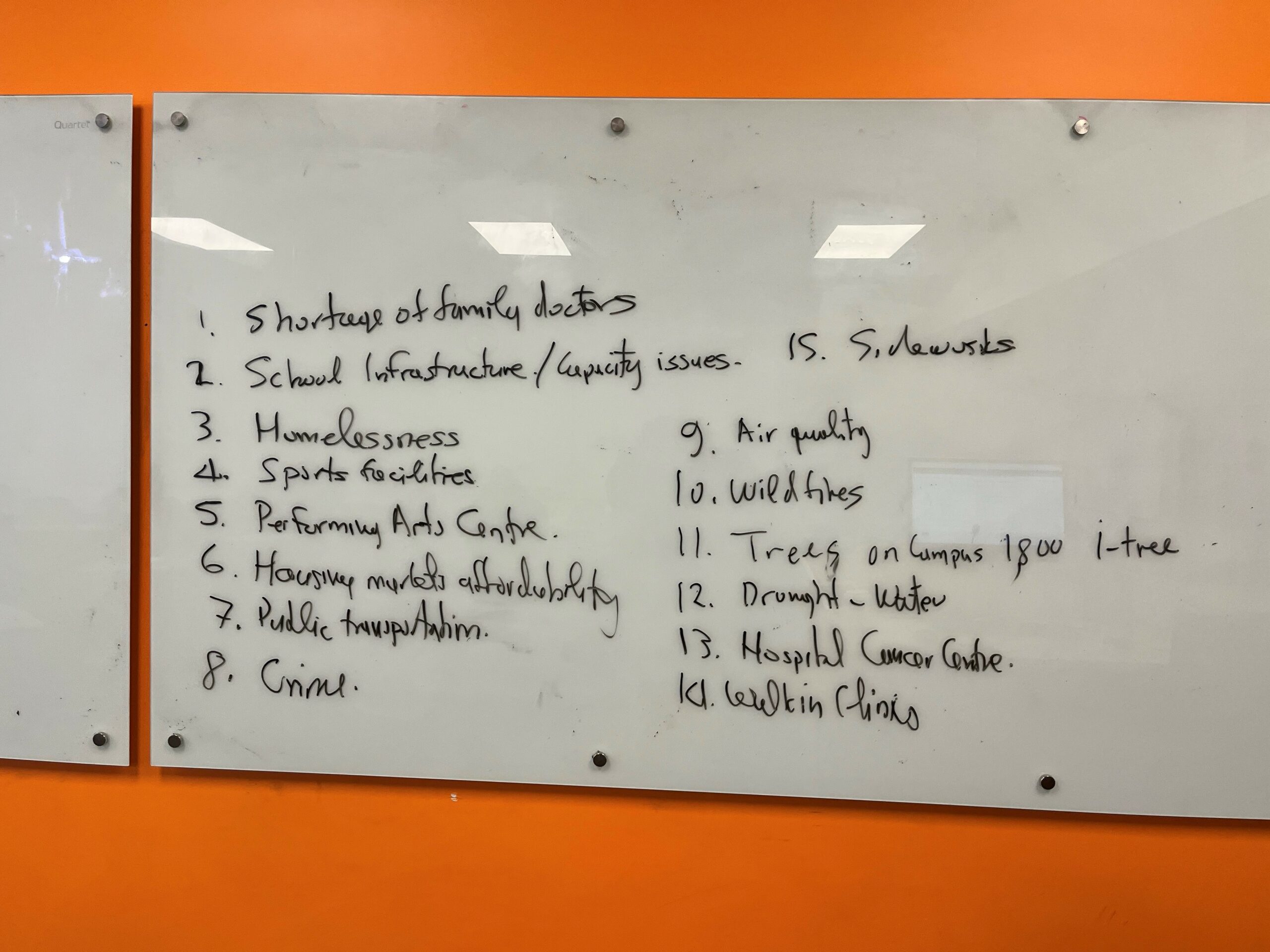Introduction to the Book
This is the first book I am writing jointly with my undergraduate students in the 2024 Winter/Spring semester. It is about socioeconomic issues in Kamloops. This book evolved from a fourth-year undergraduate capstone course, ECON 4980, at Thompson Rivers University (TRU), which was assigned suddenly by my Chair. It was also cross-listed as a political studies course, POLI 4980. The course is entitled “Capstone.” There were eight students registered in the course. These are Alaa Award, Colin Forbes, Patrick Izzet, Kris Kadaleevanam, Garima Mehta, Samreena Noor, Olivia Simms, and Ashley Thomson.
I was unsure how to teach this course since the topics covered were not defined. I was given the general description of what capstone means and the course description in the calendar.
Capstone at TRU means that graduates are expected to reflect on their academic experiences, integrate their learning, and apply it to their lives outside the classroom, such as graduate school or work, in the capstone course. Capstone courses are supposed to be taken in a baccalaureate student’s final 30 credits. Students must synthesize, integrate, demonstrate, and expand on TRU knowledge in a capstone course. In addition to program learning outcomes, students must reflect on their learning related to the four general education themes (Connection, Engagement, Exploration, and Local-to-Global) and their degree/major.
The course description states that students must synthesize, sharpen, and apply their studies to investigate an issue. Students are expected to create a final project that reflects their personal and professional goals, social responsibility, and intercultural awareness of political and economic issues, relations, and tensions. In their project presentations, students must collaborate and communicate effectively to propose interdisciplinary solutions to political and economic issues. Students must consider how to integrate and use their knowledge of political, international, and economic issues to promote human security, global prosperity, and justice and peace when studying economics and politics today.
I altered the learning outcomes to be related to the research we undertook. It stated that students should be able to use a variety of skills and knowledge after this course. They will contextualize local issues using relevant theoretical frameworks, concepts, theories, philosophies, and frameworks. Students will hypothesize and solve local problems using theoretical, ethical, and communicative knowledge. Community partnerships and primary and secondary data will help solve these issues. Solutions will be assessed for immediate and long-term feasibility, focusing on learning and social responsibility. Self-directed research will help students synthesize program knowledge and communicate their findings. Presentation, justification, and demonstration of results in a professionally standard report or presentation are expected, along with professional communication and collaboration skills with peers, faculty, and experts. Finally, students will evaluate their progress in TRU’s educational pillars — Connection, Engagement, Exploration, and Local-to-Global.
During the first day of classes, I met with the students and discussed with them what they would like to investigate. I suggested to them to write a book together about the socioeconomic challenges our community faces, and they all agreed it was a great idea. Hence, we agreed that the course will focus on research of their choice about a local issue of importance to the city of Kamloops and its residents. Each of the eight students and I were to complete a chapter in a Pressbook within the semester and present our findings at the undergraduate research conference held in March 2024, which we did. The course was in seminar format, featuring a combination of brief lectures, mainly class discussions, helping students with inquiries, and student presentations showing their progress. We even went several times to the Den, a pub on campus, to discuss our research progress! My students submitted drafts throughout the semester, and I provided feedback to improve their research. This review process improves their research and the final output. The product is this book featuring issues our community faces and potential solutions.
During the second lecture day, we brainstormed issues that Kamloops is facing and came up with a preliminary list that included the shortage of family doctors, school infrastructure and capacity issues, homelessness, sports facilities, performance arts centre, housing affordability, crime, air quality, wildfires, the value of trees, drought-water scarcity, hospital cancer centre, walk-in clinics and sidewalks in the north shore (see Figure 1). As we continued the discussion, each one of us selected one issue to explore:
- I decided to explore the factors that influence unemployment in the 25 neighbourhoods.
- Alaa was interested in doing research on the factors that influence the quality of elementary schools.
- Colin rides the public bus and was interested in examining the challenges of the public transportation system in Kamloops.
- Patrick wanted to compare RCPM police versus municipal police and hybrid systems.
- Kris examined the housing affordability of international students and the importance of the homestay program.
- Garima took on the challenge of looking into homelessness.
- Sam took on the contentious issue of the performance arts centre.
- Olivia explored the employment income inequality during the 2020 COVID-19 relative to the 2019 year to examine if transfer payments impacted the income distribution.
- Ashley examined the economic cost of waiting times for surgery in Kamloops.

We used primary and secondary data we received from TRU ethics approval to carry out our research. The application file is No: 103773, and the project title is Insights and Solutions for Local Contemporary Issues. To get ethics approval, we all successfully completed the course on research ethics based on the Tri-Council Policy Statement: Ethical Conduct for Research Involving Humans (TCPS 2: CORE 2022).
The 19th annual TRU Undergraduate Research & Innovation Conference took place on March 25–28, 2024. We all presented our preliminary findings and received great feedback from other participants. Students from all programs and undergraduate stages present their work at the conference for the TRU and Kamloops community. The conference, organized by Elizabeth Rennie and her team, features poster sessions and lectures.

I hope you will find the book fascinating, and it will help our community assess and deal with these important socioeconomic issues and struggles.

Dr. Panagiotis (Peter) Tsigaris, May 15th 2024
Media Attributions
Figure 1: “Brainstorming issues to research in class” by the author is under a CC BY-NC-SA 4.0 license.
Figure 2: “From left to right: Kris Kadaleevanam, Peter Tsigaris, Olivia Simms, Colin Forbes, Alaa Awad, Garima Mehta, Patrick Izzet, Ashley Thomson, and Samreena Noor” by the author is under a CC BY-NC-SA 4.0 license.

